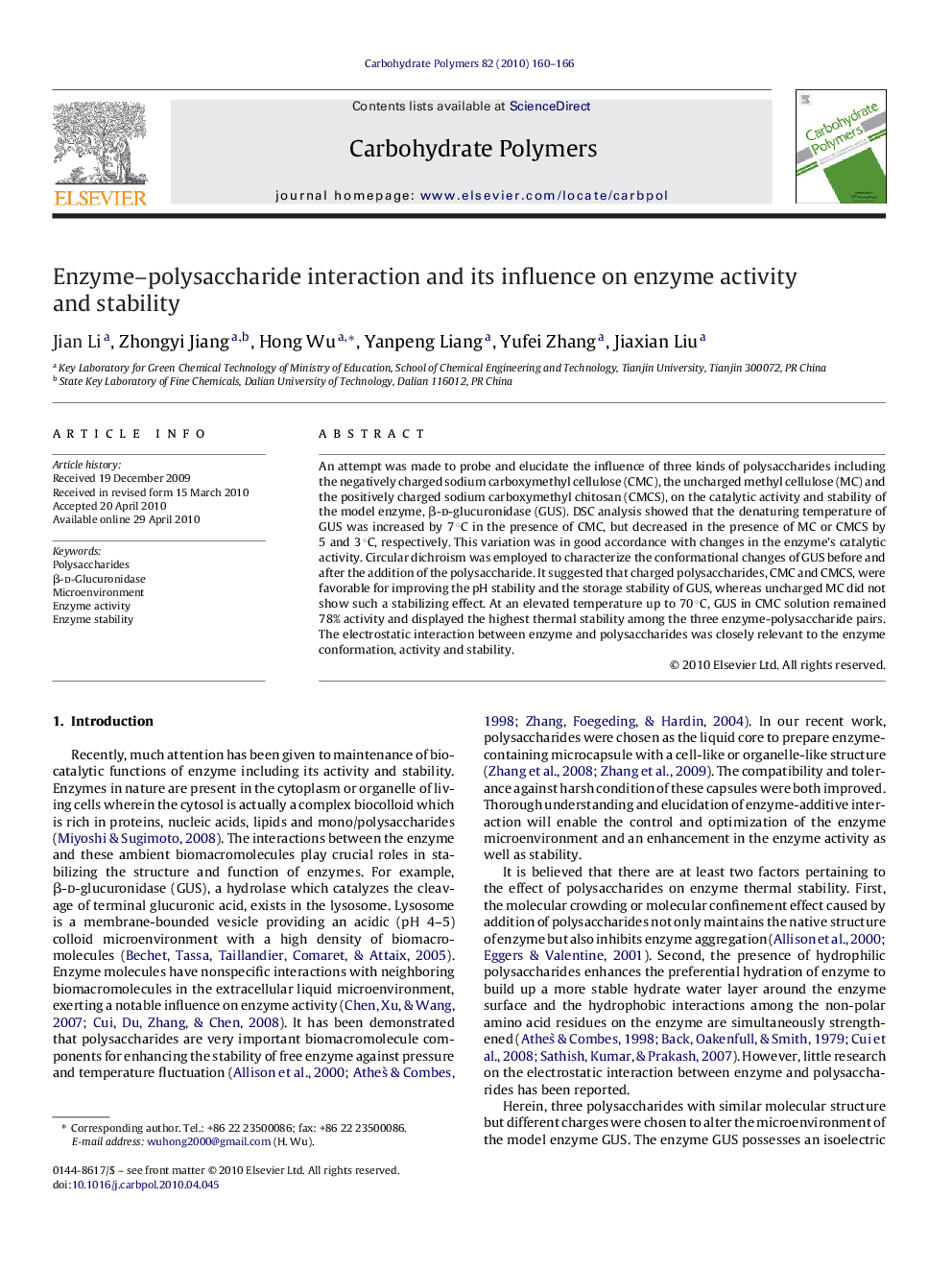| Article ID | Journal | Published Year | Pages | File Type |
|---|---|---|---|---|
| 1387151 | Carbohydrate Polymers | 2010 | 7 Pages |
An attempt was made to probe and elucidate the influence of three kinds of polysaccharides including the negatively charged sodium carboxymethyl cellulose (CMC), the uncharged methyl cellulose (MC) and the positively charged sodium carboxymethyl chitosan (CMCS), on the catalytic activity and stability of the model enzyme, β-d-glucuronidase (GUS). DSC analysis showed that the denaturing temperature of GUS was increased by 7 °C in the presence of CMC, but decreased in the presence of MC or CMCS by 5 and 3 °C, respectively. This variation was in good accordance with changes in the enzyme's catalytic activity. Circular dichroism was employed to characterize the conformational changes of GUS before and after the addition of the polysaccharide. It suggested that charged polysaccharides, CMC and CMCS, were favorable for improving the pH stability and the storage stability of GUS, whereas uncharged MC did not show such a stabilizing effect. At an elevated temperature up to 70 °C, GUS in CMC solution remained 78% activity and displayed the highest thermal stability among the three enzyme-polysaccharide pairs. The electrostatic interaction between enzyme and polysaccharides was closely relevant to the enzyme conformation, activity and stability.
